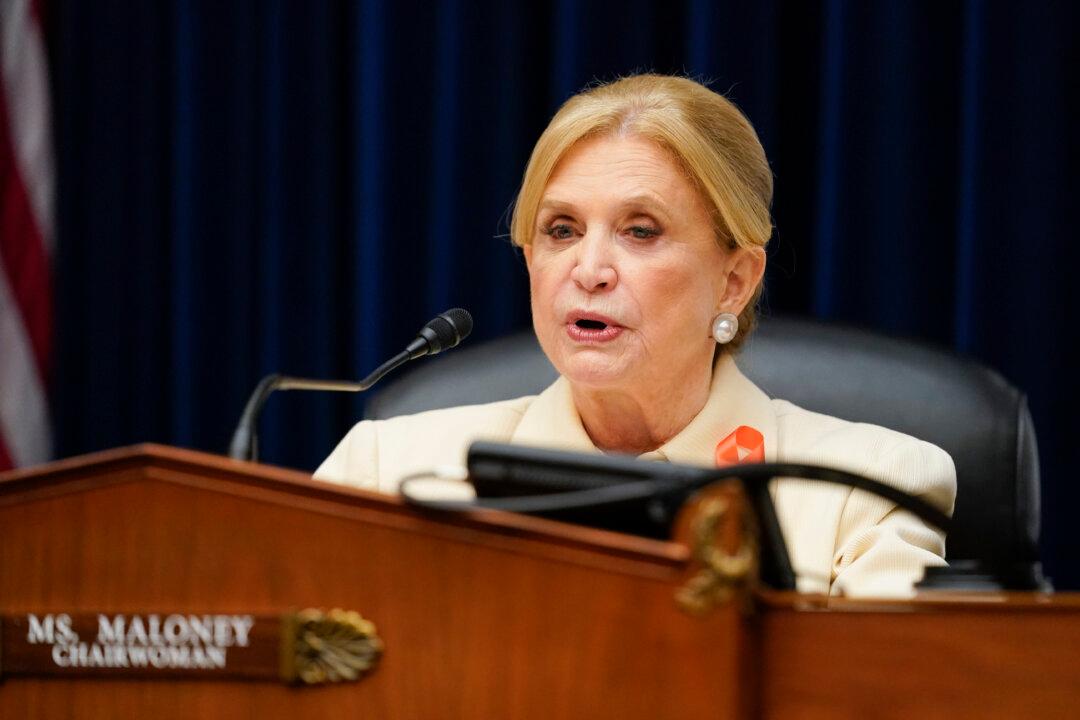A congressional panel is investigating the collection and sale of data on pregnant women, with top Democrats expressing concern that the data could be misused to invade the privacy of women seeking an abortion.
Rep. Carolyn Maloney (D-N.Y.), chairwoman of the House Oversight Committee, and two members of the panel, Reps. Raja Krishnamoorthi (D-Ill.) and Sara Jacobs (D-Calif.), said the collection of the sensitive data “could pose serious threats to those seeking reproductive care, as well as to providers of such care, not only by facilitating intrusive government surveillance, but also by putting people at risk of harassment, intimidation, and even violence.”





